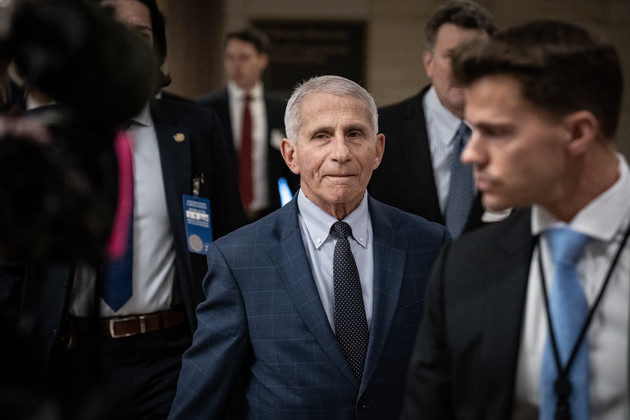Already a subscriber? Make sure to log into your account before viewing this content. You can access your account by hitting the “login” button on the top right corner. Still unable to see the content after signing in? Make sure your card on file is up-to-date.
Dr. Antony Fauci has distanced himself from former aides at the National Institute of Allergy and Infectious Diseases who attempted to evade public record laws by using private emails.
In his opening statement released ahead of a Monday hearing, Fauci asserted he “knew nothing” about the actions of David Morens, a senior adviser whose emails, uncovered by the House Select Subcommittee on the Coronavirus Pandemic, suggest attempts to hide information from transparency laws. Fauci emphasized that Morens “was not an adviser to me on institute policy or other substantive issues,” describing him as a “scientist, writer, and historian.”

The uncovered emails also imply that Fauci might have preferred conducting official business through private email to keep sensitive communications from public disclosure. In one email from April 2021, Morens stated, “I can either send stuff to Tony on his private gmail, or hand it to him at work or at his house. He is too smart to let colleagues send him stuff that could cause trouble.” However, Fauci refuted this in his prepared testimony, stating, “[To] the best of my knowledge I have never conducted official business via my personal email.”
The subcommittee’s year-and-a-half-long investigation, aimed at linking Fauci to the origins of the coronavirus and potentially dangerous research at a Wuhan lab, has yet to produce new evidence definitively connecting US health officials to the virus’s origins. However, it has raised concerns about officials’ efforts to avoid transparency.

Fauci reiterated in his testimony that the viruses studied under federally funded grants at the Wuhan Institute of Virology “had never been shown to infect humans, much less cause high transmissibility or significant morbidity and mortality in humans,” claiming that it was not gain-of-function research. He dismissed any claims that the research at the Wuhan lab created the SARS-CoV-2 virus as being “without the slightest bit of evidence or feasibility.”







